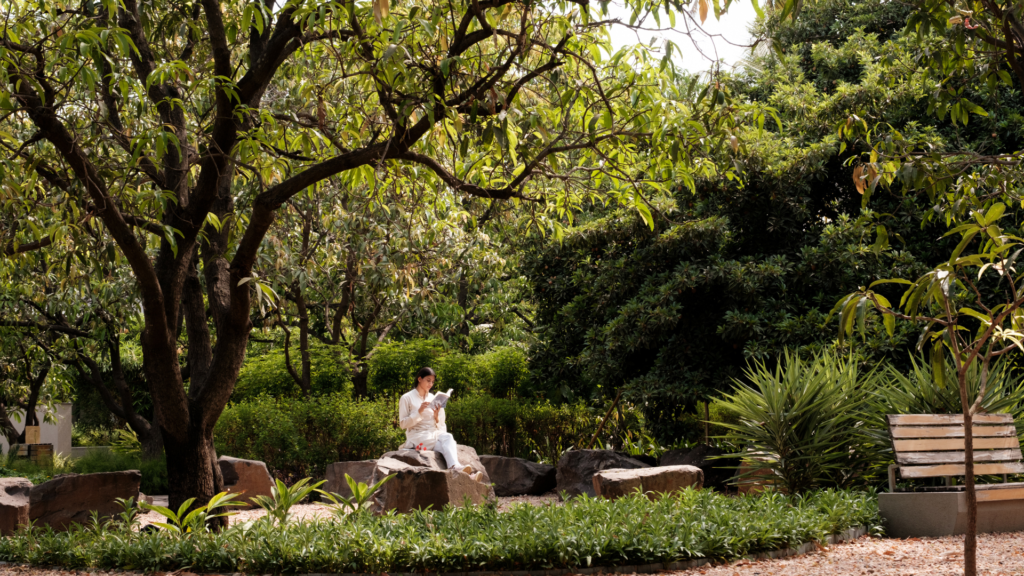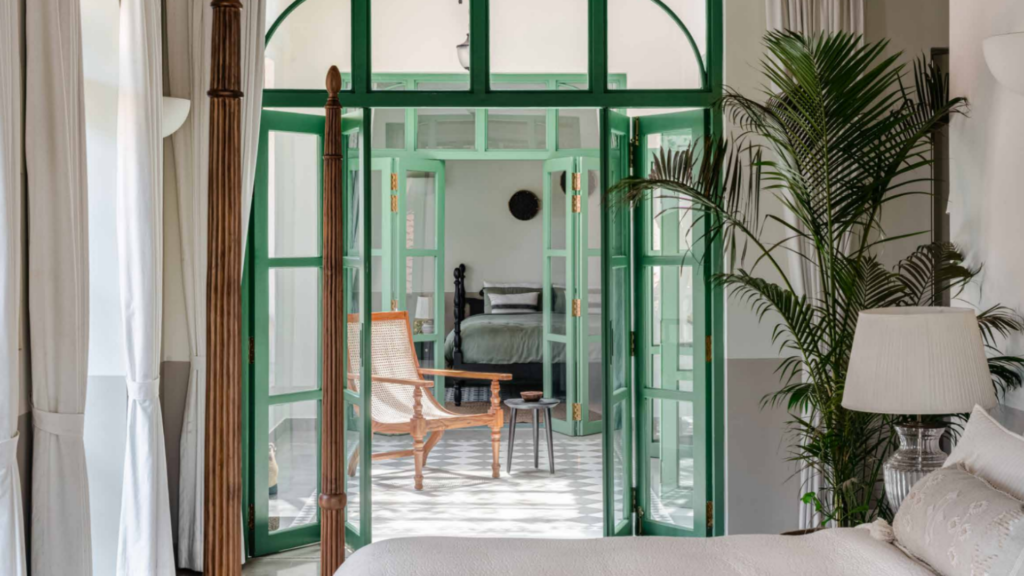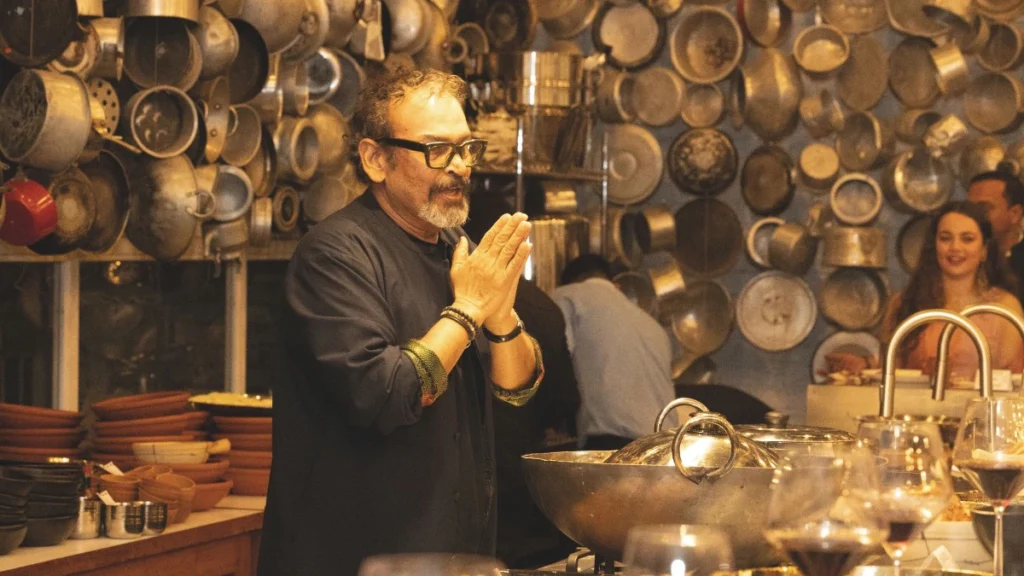This is not a story about how women’s wellness is the next big travel trend. It is a reflection of what it means for women when we talk about women’s wellness. It is about why they are travelling to heal and how retreats in India are responding to their changing needs. “Currently, we are prioritising masculine principles of productivity, achievement, and burning ourselves at the stake to claim power—women too. And when you do that, the feminine principles of receptivity, intuition, and emotional resting are deprioritised, creating an imbalance within us,” says Meher Malik, who runs Moksha in the Mountains with Rahul Goswami. Priyanjali Das, Co-founder of Suki Suki, echoes the belief that female wellness needs to be redefined as inner harmony balanced with the outer world of roles and expectations: “It is so much more than just spa, meditation, and yoga—it is the ability to be more forgiving of ourselves and to learn to draw boundaries where needed,” she says.
These are two of the many retreats that have sprung up in recent years to embrace female wellness beyond clinical terms. While Moksha in the Mountains runs a gender-tailored programme called Wild Womb in Dharamshala, Meghalaya- based Suki Suki claims to be the first all-women’s wellness retreat in the Northeast, run by Das, Habari Warjri, and Teiskhem Lynrah. These spaces respond to women’s growing demand for versatility and agency in their wellness journeys. Established retreats like Prakriti Shakti are also witnessing more women seeking wellness, with a rise in the number of solo travellers as well as pre-wedding groups. Sreelal Sankar, Head of Ayurveda at Ananda in the Himalayas, notes that this is complemented by “a growing awareness of preventive care and the intricate connection between lifestyle, diet, and overall well-being.”
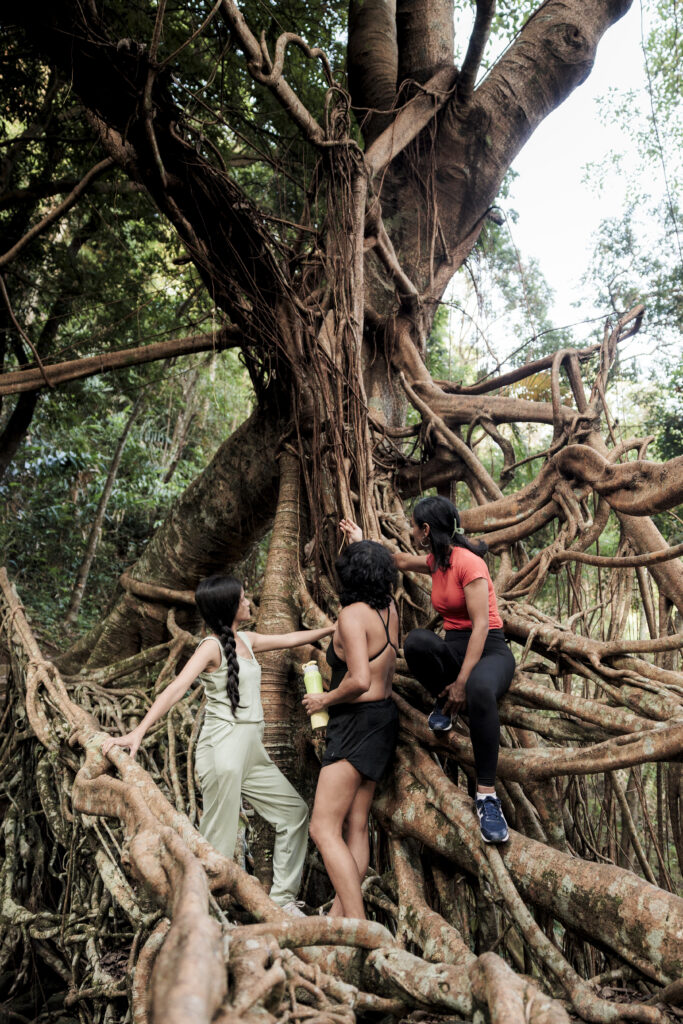
Well-being is thus finding its ties to mental, emotional, and social needs, which can differ for each individual. “Different genders do require different care, for they come with their own unique generational trauma,” Meher shares. Retreats that once focused solely on yoga and physical therapy are now embracing psychoanalysis, life coaching, and soul work as new approaches to healing. Many employ alternative and esoteric therapies such as Reiki, neuro-linguistic programming, inner child healing, and sound therapy. “The voice and the womb are deeply connected for a woman, so as we sound and move, it allows us to live more restfully, expand feelings inside the body, and experience good sensations,” she explains.
These approaches are not only present in newer retreats but also complement existing programmes that are evolving to target gender-specific concerns at all life stages, including fertility, ovarian disorders, menopause, and bone health through traditional medicine. Raga Svara in Rajkot, for instance, has a Women’s Health Retreat and offers gender-specific care such as post hysterectomy recovery. While some retreats work with naturopathy and Ayurveda, others combine them with Oriental medicine and clinical treatments such as IVF. For some women, physical health plays a significant role in elevating mood and mental well-being, and they find such retreats to be effective in offering a snapshot of what holistic health can look and feel like. Hospitals such as Vaidyaratnam Oushadhasala and Kottakkal, on the other hand, have emerged as underrated alternatives for those seeking targeted treatment rather than holistic wellness in luxury settings. While some Indian retreats continue to deepen their focus on healing modalities, many are also fostering a sense of sisterhood. SnehYog, for instance, is a travelling retreat that takes women out of their daily routines, allowing them to switch off for a few days. Destressing, revitalising, and community building are at the core of such retreats, making them an attractive option for those seeking a quick change rather than deep inner work.
Globally, similar retreats are evolving into communal and self-discovery experiences through focussed formats. The Salt Sisterhood in the UK offers wild swimming retreats, while Sterrekopje Healing Farm in South Africa ties healing to hands-on farm work. Indian retreats are only beginning to explore nature-based formats, often through simple activities such as treks, site visits, and open-air yoga integrated into broader in-house programming. But, they do provide the comfort of safety, especially valuable for solo travellers. Das points to a geographical disparity though, noting that most such offerings are concentrated in states like Goa and Uttarakhand, with limited options in Eastern India.
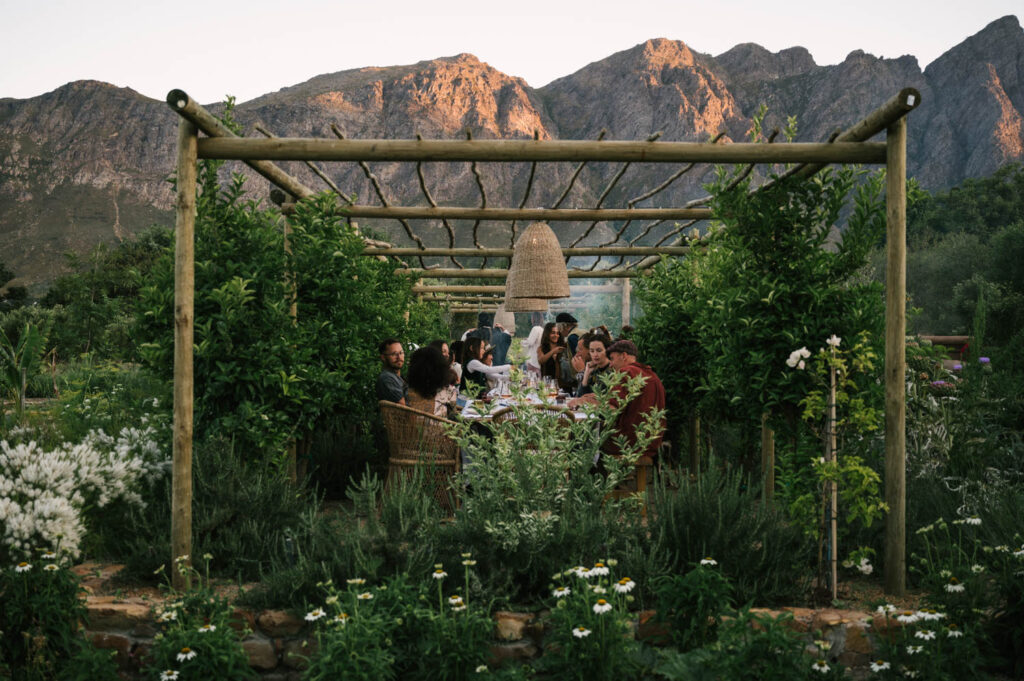
There is also a long way to go in terms of sexual wellness, intimacy, and reproductive health. Moksha is claimed to be one of the few retreats to overtly address these aspects of female wellness. Meanwhile, some wellness spaces continue to stigmatise women’s modern-day lifestyles. Wellness expert and author Vasudha Rai shares, “During my endometriosis, several doctors kept asking me to continue getting IVF. Only the doctor who gave me my final surgery told me that endometriosis gets worse with IVF. I felt let down by my other doctors, also because of how I was treated by some as a woman with problems versus someone who was carrying a child. One doctor, in particular, was more responsive to pregnant patients while refusing to take my calls even after I developed a fever following one of my surgeries.” Along with unbiased professionals, many women seek female experts who can relate to lived experiences and lead wellness spaces more effectively. There is also a need for professionals to provide realistic tools that integrate well-being into daily life, rather than framing it as an isolated concept attainable only through major lifestyle changes, such as attending regular retreats or reducing work commitments. “In my case, I was looking for solutions within my current lifestyle and not a suggestion on how to live my life,” Rai adds.
This changing mindset is also being reflected in some larger programmes. Six Senses Vana, for example, offers a cycle-syncing course to help women manage hormonal imbalances arising from lifestyle factors, while Suki Suki provides ‘Feminine Leadership’ workshops to apply inner well-being to the workplace. Several retreats are responding to these evolving narratives, but as with wellness itself, evolution is an ongoing process, with new offerings continually making better well-being more accessible, one step at a time.
This article first appeared in Bazaar India‘s March-April 2025 issue. Find the digital version here.

